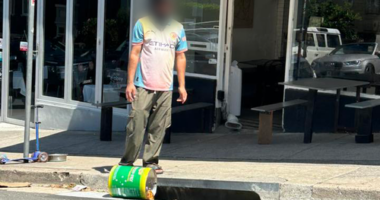Share this @internewscast.com
She’s overwhelmed, struggling with insomnia, battling hunger, and grappling with alcoholism, all while trying to maintain her composure—and falling short.
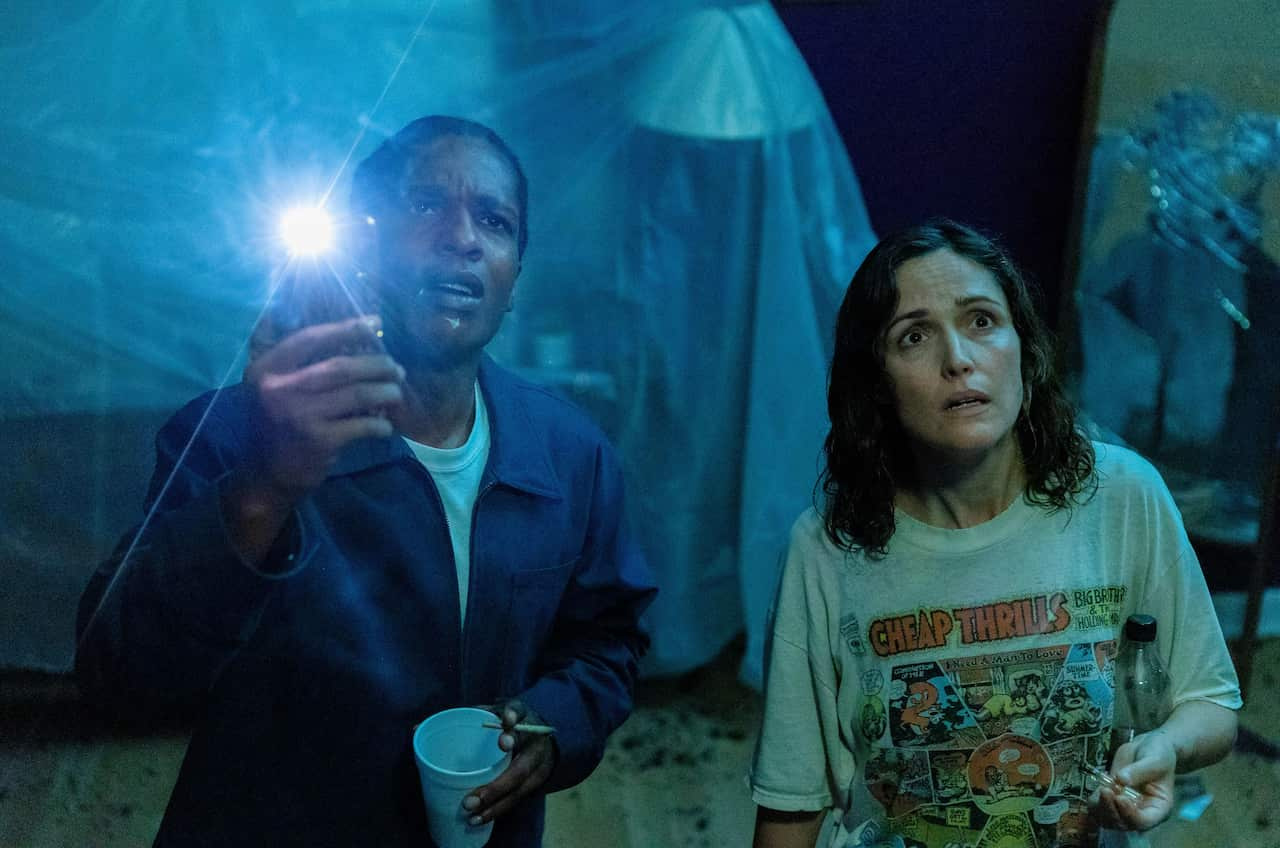
“If I Had Legs I’d Kick You” might initially appear as a quirky production with its unexpected ensemble cast, including Rose Byrne, rapper A$AP Rocky, and talk-show personality Conan O’Brien. However, the movie delves into more profound themes.
The casting choices may seem deliberately unconventional, but the film is primarily a thoughtful exploration of the unspoken aspects of motherhood, often absent from cinematic narratives.
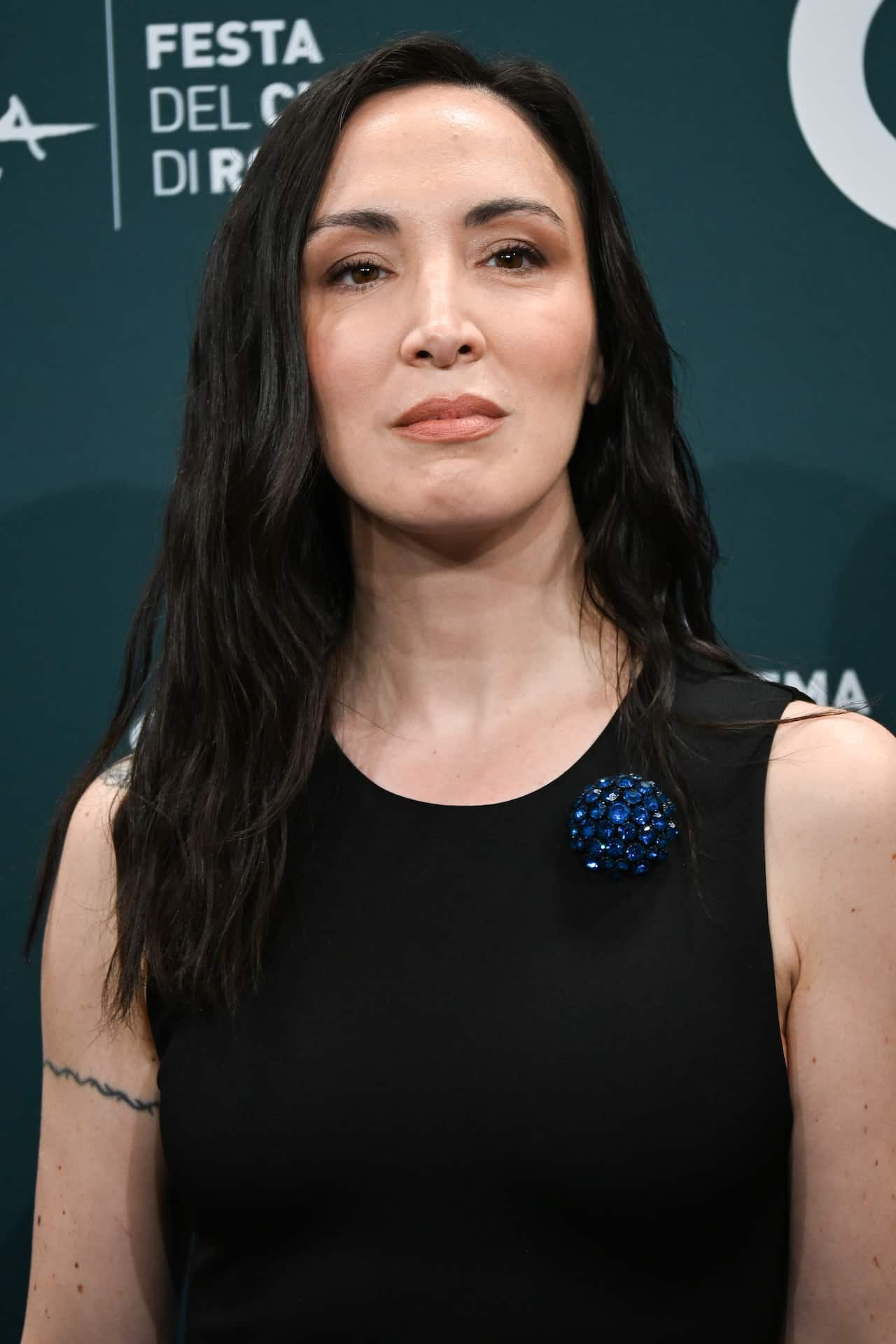
“I reflected on it and realized I’ve never seen a movie that centers on a woman who has a child, yet isn’t focused solely on her role as a mother. It doesn’t pass judgment and allows her to exist as a fully realized human being. And it’s created by a woman?”
Mary Bronstein, the writer and director, seeks to immerse audiences in the whirlwind of anxiety and existential dread that permeates her latest film, “If I Had Legs I’d Kick You.”
‘You’re stuck with her’
Then there’s the hole: a growing, pulsing void in the ceiling that serves as the film’s trigger point. Even Bronstein isn’t sure if the hole is real or not, explaining it as a symbol of that place in your brain where you shove everything that you can’t deal with — knowing full well that it will force its way out eventually.
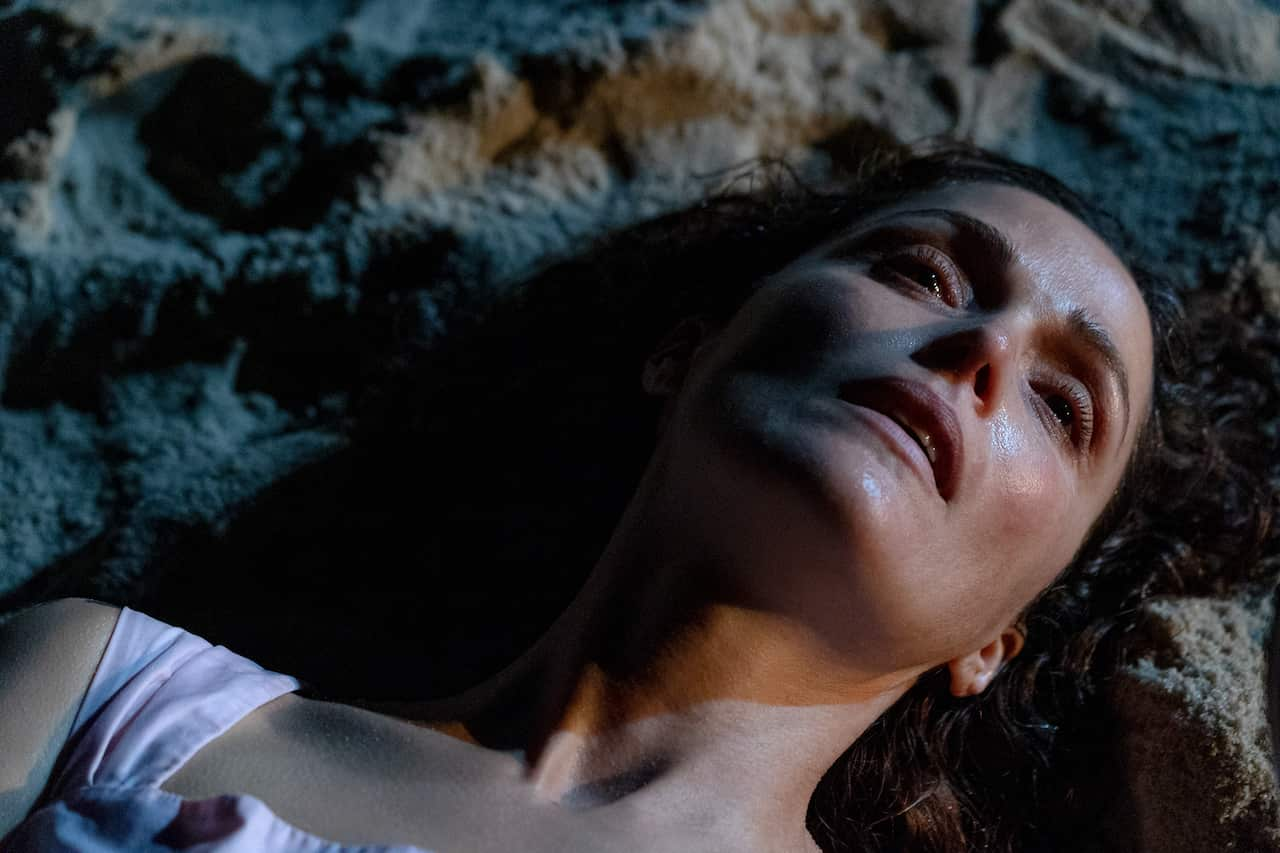
In If I Had Legs I’d Kick You, Rose Byrne is going through an “existential crisis of tremendous proportions”. Source: Supplied / A24
“This woman is having an existential crisis of tremendous proportions. She’s experienced a trauma that she’s avoiding at all costs. She’s running away from it for the entire movie and it’s going to come and get her,” Bronstein says.
“It starts out as the first problem in the film and then expands out into this thing that takes on meaning beyond anything that reality can answer. I can’t even really tell you [what it is] because it’s a completely expressive idea that I can’t fully articulate in words.”
“She has a de-evolution of appearance in this film. As her emotional state goes down, so does her appearance. She can’t pretend anymore on the outside, it’s gone.”
If you are seeing an actual child, your sympathy is immediately going to go with that child.
“What I wanted to do is make it impossible — impossible for there to be an easy way for the viewer to put their sympathy elsewhere than her. You’re stuck with her. It’s about her.”
‘There’s a deep shame’
Up to one in five women experience perinatal depression or anxiety during pregnancy or following the birth of their baby, according to Perinatal Anxiety & Depression Australia (PANDA). Postnatal psychosis — rarer but more severe — affects one to two new mothers per 1,000 births. Women may also experience PTSD, bipolar disorder or schizophrenia after giving birth.
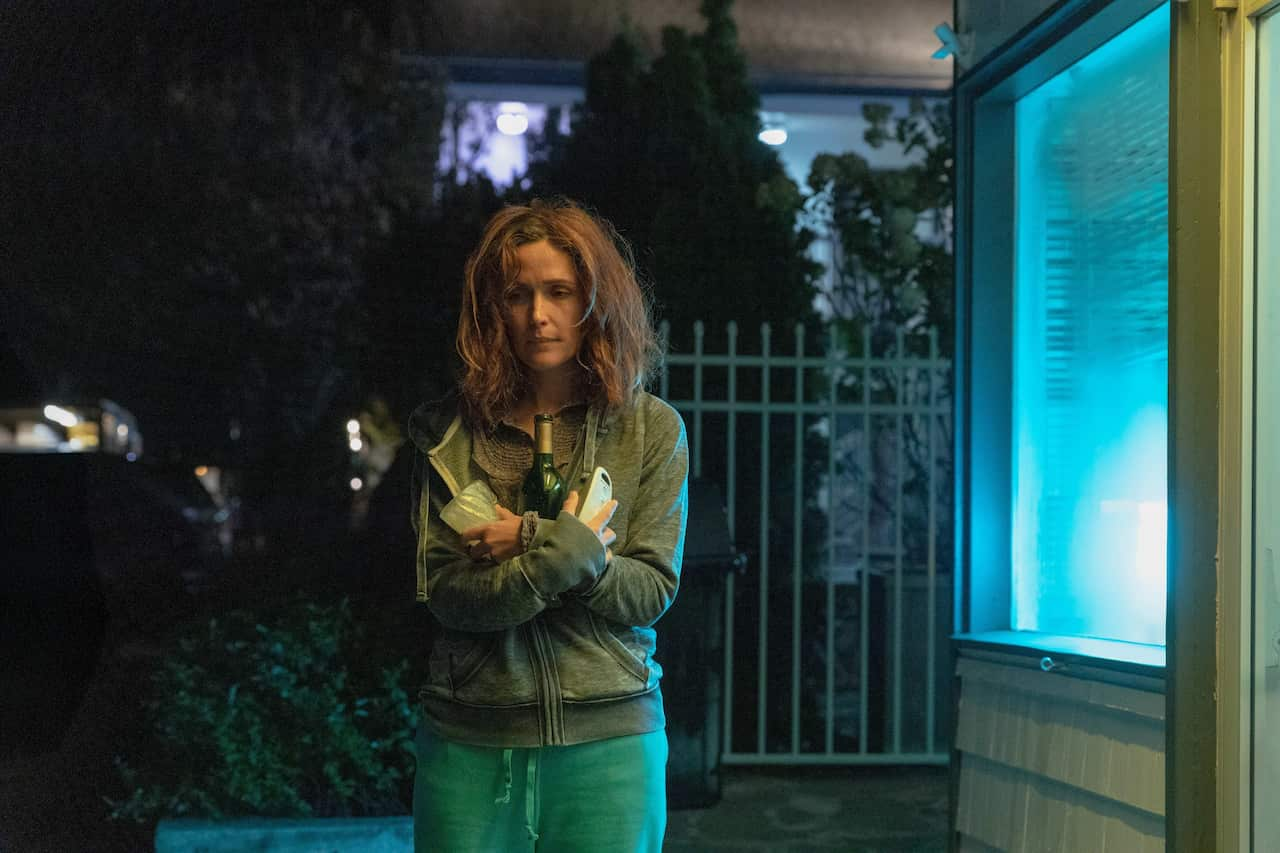
Writer and director Mary Bronstein isn’t interested in ‘bad’ mothers. Instead, she hopes her film will break apart overly sentimental depictions of motherhood. Source: Supplied / A24
Julie Borninkhof, a clinical psychologist and the CEO of PANDA, says perinatal depression and anxiety often look different for everyone — sometimes like wanting to “climb into a dark little box and block yourself away”, or being “wound up like a rubber band” with anxiety.
Bronstein tackles that taboo directly.
“Sometimes it is bad people doing bad things. But most often, it’s a mental illness. It’s a real thing. It’s postpartum depression and postpartum psychosis.”
We’re sold a bill of goods … but it’s not like that for a lot of women.
“People still find it difficult to say that they’re struggling and that they need help … this pervasive feeling of being a failure and that you’re not able to do what so many others are able to do is still a real barrier to people seeking help.”
‘Maybe I got rid of the wrong one’
“I wrote it in the script. I took it out. I put it back in because I knew that was the line that was going to make people uncomfortable,” Bronstein says. “But I was like, no — that’s why it needs to be in there.”
I wrote it in the script. I took it out. I put it back in because I knew that was the line that was going to make people uncomfortable.
Online, communities like Reddit’s r/regretfulparents (54,000 members) and the Facebook group ‘I Regret Having Children’ (88,000 followers) share anonymous confessions — a testament to the lingering taboo.
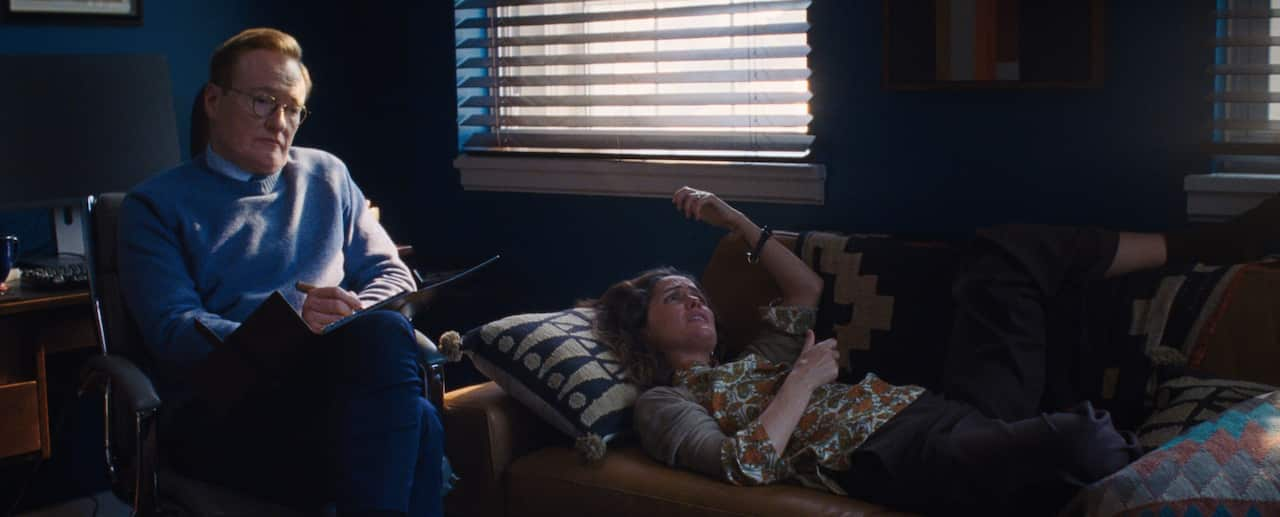
The film’s most controversial line almost didn’t make it to the final cut, with Bronstein worried it would make people “uncomfortable”. Source: SBS News / A24
Borninkhof says such regret is “normal” and “human”, but can become damaging if left unaddressed.
“We need to get help with the internal conflict that comes with that as soon as possible.”
‘There’s nothing wrong with being uncomfortable’
“Some people feel this great sense of empowerment and self-reflection because they see that their experience was real and valid.”
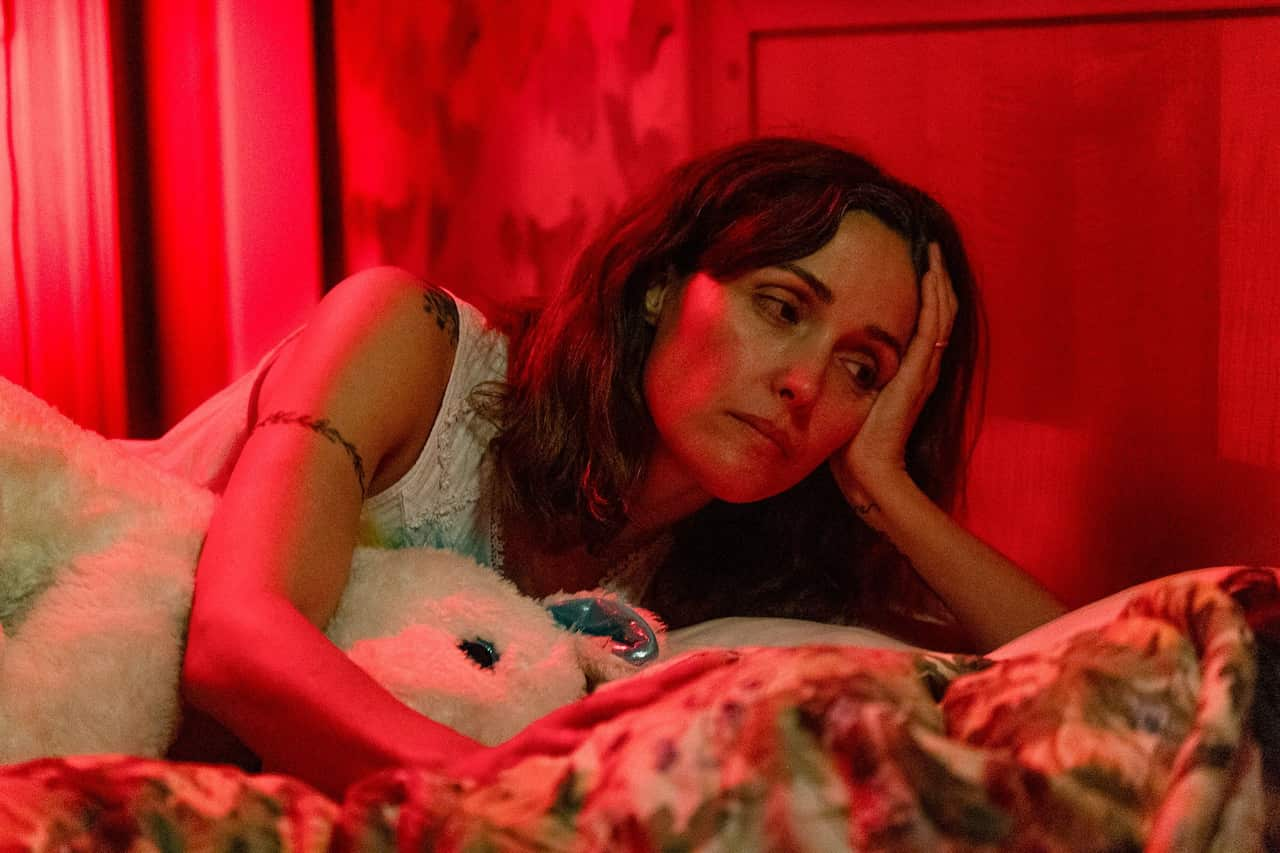
While one clinical psychologist warns a film like this could be confronting for those who have experienced perinatal mental illness, Bronstein says there’s “nothing wrong with being uncomfortable”. Source: Supplied / A24
But she says for those who might be in the “thick of it”, it might be confronting.
Bronstein says discomfort is part of the point.
If something makes you uncomfortable, you need to wonder why it makes you so uncomfortable.



